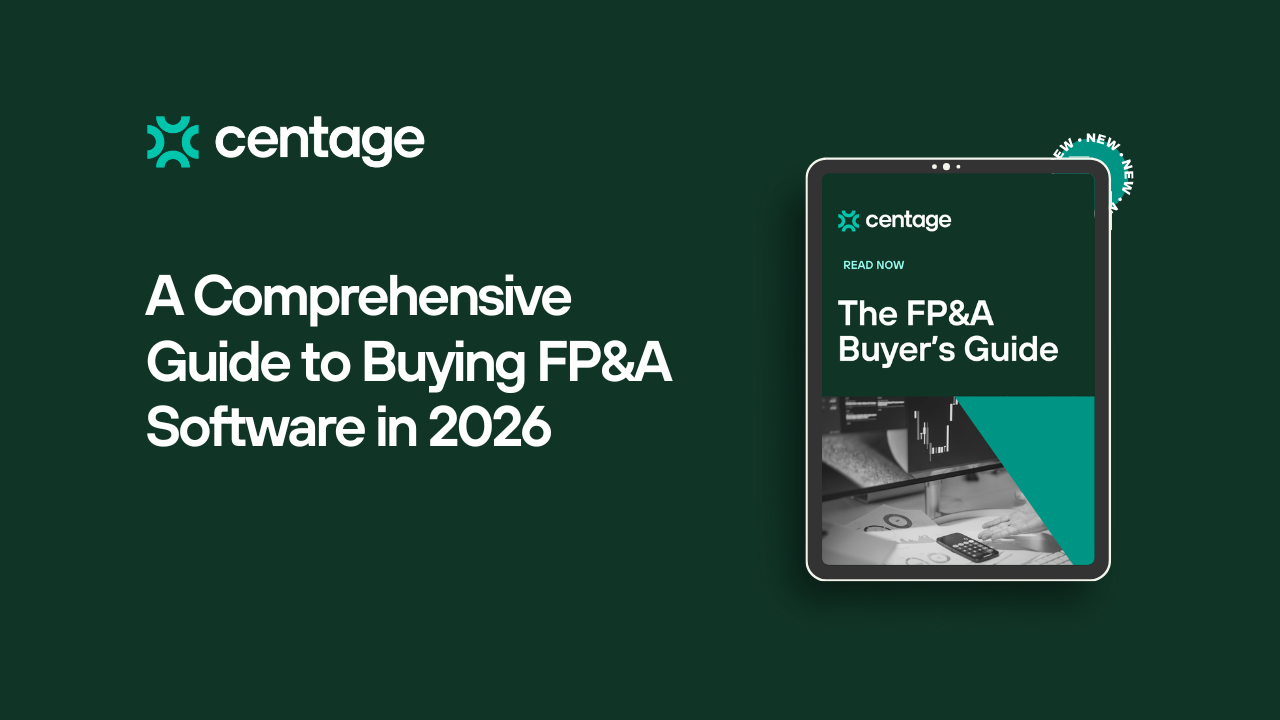Why Have a General Ledger in a Budgeting Software?
A Seemingly Strange Concept Turns Out to Be a Brilliant Idea
At first, this looks rather strange. A general ledger with both automated and manual journal entries capabilities is common place in all accounting software applications or in the ERP solution’s financial section. But why do they have that in a planning and budgeting software? After all, it’s not an accounting solution. There are no “real” transactions; all we are trying to do is project revenue and expenses and then monitor actual performance as communicated by the company’s financial statements and other reports against the agreed upon and management-approved budget. Or is there something else going on?
Centage by Centage Corporation
I am referring here to Centage budgeting software by Centage Corporation (www.centage.com/). A straightforward solution for SMB (small & medium-sized business) with built-in business rules and logic where users never have to enter formulas or link worksheets together in the budget process. All this is great and really transforms the traditional, spreadsheet-based process into a much more streamlined, more secure process and without the endless maintenance and troubleshooting of bad formulas and links so common with spreadsheets.
The Importance of a Forecasted Balance Sheet
However, there is something else very important to consider. When you prepare your company’s annual budget or any other timeline-based financial forecast, your primary goal is to propose to management, through the budget process while ultimately seeking approval, an anticipated company performance, communicated through reports. These usually consist of a forecasted P&L and maybe other financial reports, and some form of a cash flow projection. Very few budgets will also have a rudimentary balance sheet, almost always incomplete and rarely accurate.
Few finance professionals and managers would disagree that the forecasted balance sheet is a critical financial statement essential to understanding the future financial health of the organization and one greatly needed by management to make sound decisions.
The Challenge of Creating a Forecasted Balance Sheet
However, the reason you usually don’t see a complete and accurate forecasted balance sheet and a statement of cash flows is that you need a general ledger (GL) to be able to compile these statements. In my experience, there is only one planning and budgeting solution that employs one (Centage). Any actual accounting system keeps track of all account balances through both automated and manual journal entries made in the GL. This is how all account balances are maintained from period to period. Shouldn’t a budgeting solution use the same approach?
The Limitations of Spreadsheets
Anyone who claims they can do this accurately in a spreadsheet is underestimating the task at hand or simply mistaken. Your spreadsheets are not designed to accept journal entries from various areas in your budget. You cannot practically tell the spreadsheet to subtract a certain amount from the cash account balance when your forklift operator in the Dallas regional distribution center got paid, or that your payroll tax liability just got higher due to that same paycheck. So you have to approximate or use other high-level formulas (hoping there are no errors in them or bad assumptions, and that everything is linked together properly); a very bad idea.
The Advantage of a GL in Budgeting Software
On the other hand, having a GL that does all that tedious work, automatically in each budget period, taking into account every single attribute of every single budget item doesn’t sound like a bad idea anymore. In fact, those who use this approach think it’s a brilliant idea. I agree with that and hope that other software vendors in this space will adopt this GL approach. The way I see it, every organization deserves to benefit from their budget process using tools and reports that are identical in format and appearance to their actual counterparts and using a similar workflow as their actual accounting process, which means the budgeting software solution should always have a general ledger at its core.
Keep reading...
Interviews, tips, guides, industry best practices, and news.


